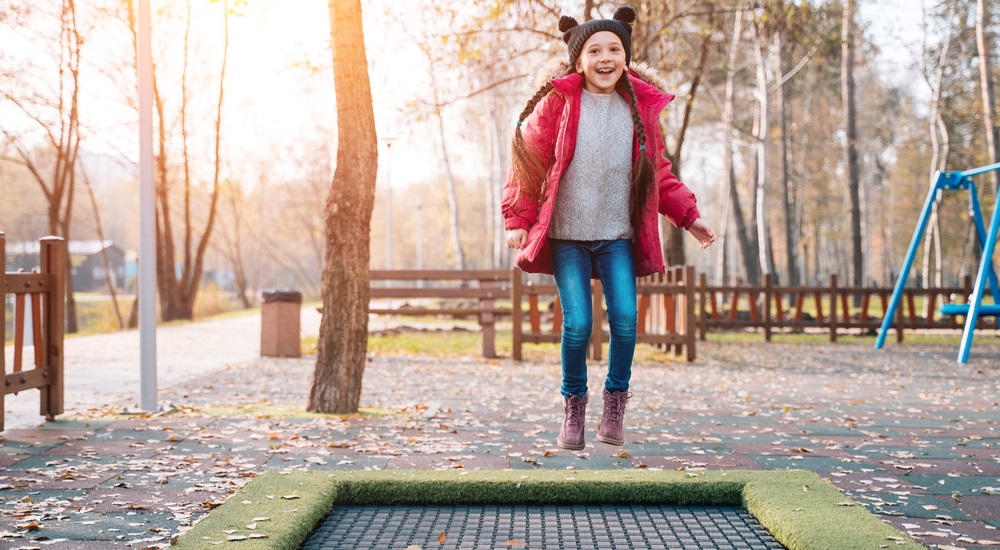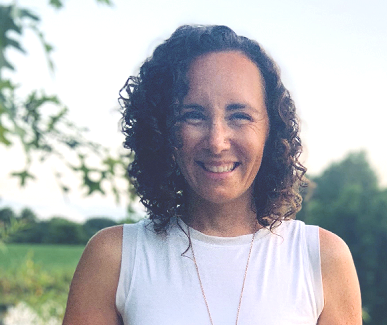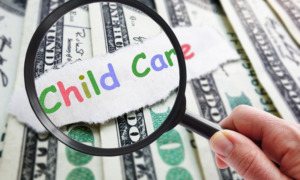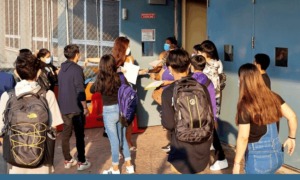 HRECHENIUK OLEKSII/SHUTTERSTOCK
HRECHENIUK OLEKSII/SHUTTERSTOCK
I am writing this just days after a mob stormed the U.S. Capitol, incited by the president. This happened one day after my local congresswoman gave a speech in which she said that “Hitler was right … whoever has the youth, has the future.”
As of this writing, we are nearing one year of pandemic living and nine months of crisis schooling (summer included). COVID cases continue to rise and as of now, more than 395,000 people in the United States have died. To put that in perspective, that is more than the entire population of New Orleans, Louisiana, and twice the size of Montgomery, Alabama.
And just so we don’t forget, it was not long ago when we were responding to another wave of murders and violence against Black citizens, thanks to America’s especially brutal brand of racism and anti-Blackness.

These are things we know. For many kids, this is all they know. Their entire lives have been defined by unrelenting, unprecedented times. Today’s kids are growing up in turbulent and trying times. They are disruption and digital natives, with childhoods defined and divided by increasing complexity and volatility.
And in spite of this, science says they will live longer than ever. At least they should. Kids in America and other developing countries have the potential to live to 100.
It is our duty to help the young people in our lives make it through this especially tough time and to get ready for the long lives ahead of them.
This requires a sharp focus on what young people need to both survive and thrive at once. This is something I have been trying to figure out for many years. I have read the research, talked to the smartest people I can find and learned from some of our nation’s most innovative youth developers, organizers, civic leaders and educators.
I have been thinking about their ideas and insights a lot the past few days. This week alone, my children and I have had to grapple with big questions about democracy, racism, religious persecution, power and privilege. At the same time, we have been grieving for someone who died from COVID, while trying — with limited success — to keep up with schoolwork.
What Child Care Professionals Can Do
I don’t know what the next few months will bring. But I do know that there are some specific things we can all be doing to support the kids in our lives and to help them make it in the year ahead.
Here are 10 things you can start doing today, pretty easily and for free:
- Find ways to help kids reduce stress — too much stress is bad for the brain and body. It causes tunneling, which means only being able to focus on what’s directly in front of you. This makes learning and living hard. The tougher the situation, the more stress it causes (sometimes at toxic levels). Kids need ways to manage and minimize stress. You can help. To get started, check out these helpful recommendations put together by the CS Mott Children’s Hospital.
- Prioritize rest — there is a direct link between the stress we experience and the rest we need. More stress, more rest. Kids — especially teens — typically don’t get enough. Given everything happening, let’s assume more rest is needed. Rest has some added benefits too. The brain needs that down time to learn optimally, organize thoughts and spark creativity.
- Get rid of things that don’t have to get done — back to tunneling. If a kid is feeling overwhelmed and in crisis mode, they will only be able to focus on whatever is demanding their time. When we add noncritical assignments and things to do, it just adds to the noise and the overwhelm, making it even harder to get things done and frankly, to have any kind of quality of life. If you are responsible for doling out assignments and tasks, consider consolidation or reduction.
- Build in essential extras — the things most essential for youth development are often too expensive or considered extras, which are easy to get rid of when cuts need to be made. Don’t do that! This is the time when extracurricular and enrichment activities are especially vital, just not in excess. Work to keep them in or build them back.
- Nurture relationships — relationships can provide the stability and security that the world is not offering right now. If you have the ability to spend some individual quality time with the kids in your life, take advantage. They will benefit and so will you.
- Encourage physical and mental fitness — we are in the dark days of winter and a bit of a political dystopia. Tending to self-care is important for everyone, but especially for kids who don’t have the same kinds of interactions and connections that life before COVID provided. Young people are hypersocial by design. And, for most, there is some real social deprivation happening right now (virtual is never as good as in-person interactions). Encourage good amounts of physical activity and self-care, including seeking extra help (like therapy) when needed.
- Keep providing the basics — my colleagues in Virginia like to say “Maslow before Bloom” — the idea is that we have to make sure young people have their immediate needs met before they can fully focus on learning and planning for the future. Over the past few months, I am sure that you have seen way more kids and families in need of cash assistance, housing, food and other basic supports. These needs aren’t going away. Do what you can to keep advocating for and allocating additional resources to support these basic needs.
- Be playful — what’s happening right now is pretty awful. It’s easy to get consumed by everything that is wrong and dragged down. To counter that, kids need plenty of opportunities to just be kids. To take a break from everything happening, to take off their masks (safely) and to relax and play. Make room for it and prioritize it.
- Create spaces of belonging — let’s not make things harder than they already are. Do your best to create spaces where young people can bring their full selves into the room, feeling known and welcome. This has always been important and this past year brought into sharp relief how often it doesn’t happen. Figure out what authentic belonging and inclusion looks like and then make it happen.
- Celebrate survival — look for opportunities to tell kids how well they are doing in a pretty bizarre time. There’s strength in survival and it should be honored and celebrated. Tell them they are strong and brave. Keep those strengths of survival front and center and consider their short- and long-term value.
Realistically, things are going to continue to be chaotic and strange this year, at least for a while. We would do kids a disservice to not be honest about that, to name it for what it is — hard, exhausting, confusing, unpredictable. The real service will be in putting all the necessary supports in place so that, in spite of these challenges and circumstances, the kids we care about have every opportunity to live, learn, survive and thrive.
Stephanie Malia Krauss, an educator, social worker, researcher and writer, is a senior advisor to JFF and a staff consultant for the Youth Transition Funders Group. Her debut book is “Making It: What Today’s Kids Need for Tomorrow’s World.”































